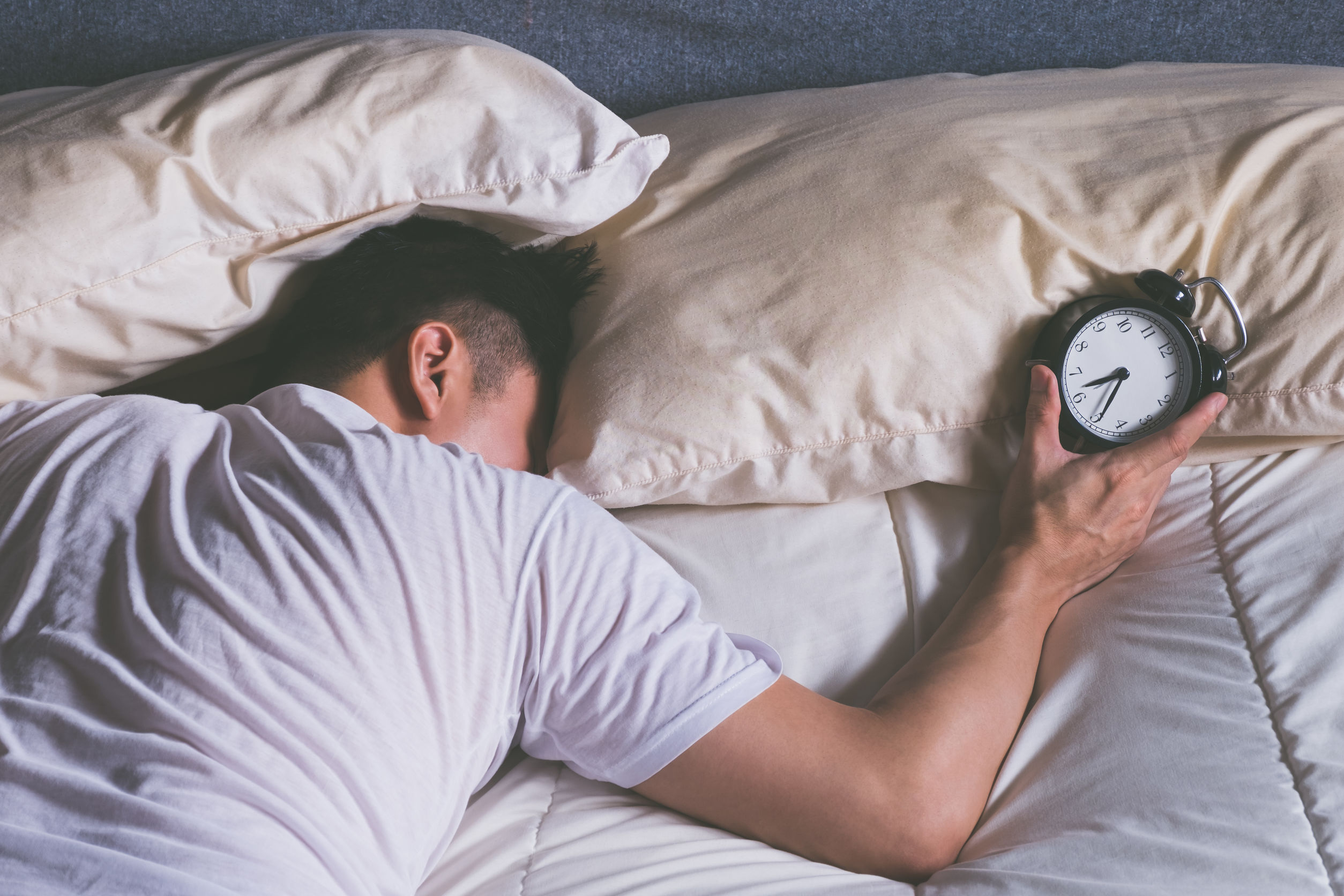”Georgia, do you notice your mood change when you haven't been sleeping enough? This is due in large part to our body's stress and recovery responses. You can learn more in this week's article. Enjoy!
Reading Time: 10 Minutes
MWi Hacks:
- Learn 5 top tips to improve your sleep quality
- Find out what the experts are saying about hormones, stress and recovery responses
MWi Summary:
- Cortisol, one of our stress hormones, is released in the morning to help provide us with energy throughout the day. However, when we are sleep deprived cortisol levels are especially high which leads to over-reactivity in our moods and reactions.
- Growth hormone and testosterone are released when we are in deep sleep to help our bodies repair tissues and cells. If we are sleep deprived, our bodies cannot recover properly since these hormones are not being released.
- Five tips to help you get more sleep are:
- Be asleep more than two hours before midnight.
- Reduce use of electronic devices before bed.
- No sugary foods before bedtime.
- Sleep in the fetal position.
- Keep your room cool.
It goes without saying that sleep is absolutely necessary to feel refreshed and rejuvenated the next day. The “what of sleep” is usually obvious but the “why of sleep” is usually not. In fact, it is the why that is the most critical for Soldiers and tactical athletes. It is the ‘why’ that has the ability to take performance to the next level, but also the ability to lead to “burnout” and disappointment if not taken seriously. In this blog, I discuss the key science of sleep physiology and why harnessing the powers of sleep has the ability to elevate life to the next level.
The Stress Response
We have often heard that adequate sleep helps us maintain emotional and psychological balance. With adequate sleep, we are more likely to successfully handle adversity and less likely to overreact to adversity. Without sleep, we are quick to react and usually not rationally. We quickly jump to conclusions and this applies to many facets of life from how we respond to a phone call, a text message, and even how we misinterpret threat on someone’s face.
The stress system is responsible for all of these decisions and actions of ours and it is the release of a hormone called cortisol that drives all of these decisions whether in a positive or negative direction. In general, cortisol has a pre-programmed schedule of release typically in the early morning. The release of cortisol is necessary for mobilizing energy stores that keep us active both physically and mentally throughout the day. With adequate sleep, the cortisol response is smooth and steady. During sleep deprivation, the cortisol response is heightened largely because energy stores had already been mobilized in order to maintain wakefulness during a time when sleep was preferred. Heightened cortisol release can lead to over-reactivity on all fronts. Pre-programmed cortisol release for the early morning is also why it is difficult for a night shift worker to achieve quality sleep after the sun rises despite how tired he or she may feel; our bodies have not and will not ever evolve to be awake at night and asleep during the day.
The Recovery Response
We have also often heard that adequate sleep helps us repair muscle, clear toxins from our brain, and facilitate cell growth on all fronts. With adequate sleep, we can train harder and recover faster, allowing us to train more with each passing day. Without sleep, our bodies quickly break down and we find ourselves sore and injured more often than limber and mobile.
An anabolic hormone system is responsible for why we repair and recover while we sleep and it is the release of growth hormone and testosterone in particular that make this possible. Much like cortisol, growth hormone and testosterone have a pre-programmed schedule of release. Except it is the opposite pattern of release as cortisol. Both growth hormone and testosterone are released at night when we enter our deepest stages of sleep. The keyword is the deepest stages of sleep. This is the kind of sleep you often see in children; when they fall asleep on the couch, mouth open, drooling on the fabric, and totally not bothered by adults loudly talking in the background. We know from years of research that if our restorative stages of sleep are short-changed, then we run the risk of having growth hormone and testosterone levels outside of healthy, normal ranges. That being said, here are five tips for ensuring that you can maximize the amount of restorative sleep you achieve at night so that you can better capitalize on a healthier, more balanced, and more productive life the next day.
Five Top Tips:
1. Be asleep > 2 hours before midnight. Quality sleep is biologically driven by the brain and is often inflexible to environmental change. The best quality sleep is achieved between 2200 – 0600. Quality sleep helps to clear toxins and repair muscle.
2. Electronic devices reduce quality sleep. A recent study found that late-night tweeting increases next-day fatigue and daytime sleepiness. Biologically speaking, blue light emitted from smartphones and TVs stops the nighttime release of the hormone that helps us fall asleep: melatonin.
3. No sugary foods before bedtime. While it is common to wake up starving in the middle of the night, eating low glycemic foods that do not elevate blood sugar (e.g., sweet potatoes over a banana or ice cream) before bedtime will help reduce awakenings in the middle of the night.
4. Sleep in the fetal position. Sleeping on your back or stomach makes the ability to breath difficult during sleep. Use pillows to condition the body to sleep in the fetal position.
5. Keep the room cool for quality sleep. A room temperature between 68 -72 degrees Fahrenheit will help ensure that you do not wake up in the middle of the night and can achieve quality stages of sleep.
MWi would like to thank Allison J. Brager, for her expert insights that we were able to share with our community.
More on the Author:
For more information on holistic health and wellness in military communities, visit social media pages of US Army Warrior Fitness. CPT Allison J. Brager is the Director of Human Performance Operations and Outreach Education for the Army E-Sports and Warrior Fitness teams of the United States Recruiting Command. She is also one of Warrior Fitness athletes. She sits on fatigue management working groups for the Office of the Army Surgeon General, the federal government, and NATO Special Operation Forces. Previously at the Walter Reed Army Institute of Research, she and her teammates leveraged groundbreaking sleep discoveries to deliver knowledge products and materiel solutions to the Army, most recently during Operation Spartan Shield. She is the recipient of two National Research Service Awards from the National Institutes of Health and a former National Academy of Sciences research fellow for research on biomarkers that promote physiological resilience in extreme environments. At present, she is under candidate selection for the Army Astronaut Program in order to do research on the International Space Station. She has an Sc.B. from Brown University and a Ph.D. from Kent State University and is author of the popular science book, “Meathead: Unraveling the Athletic Brain.”





